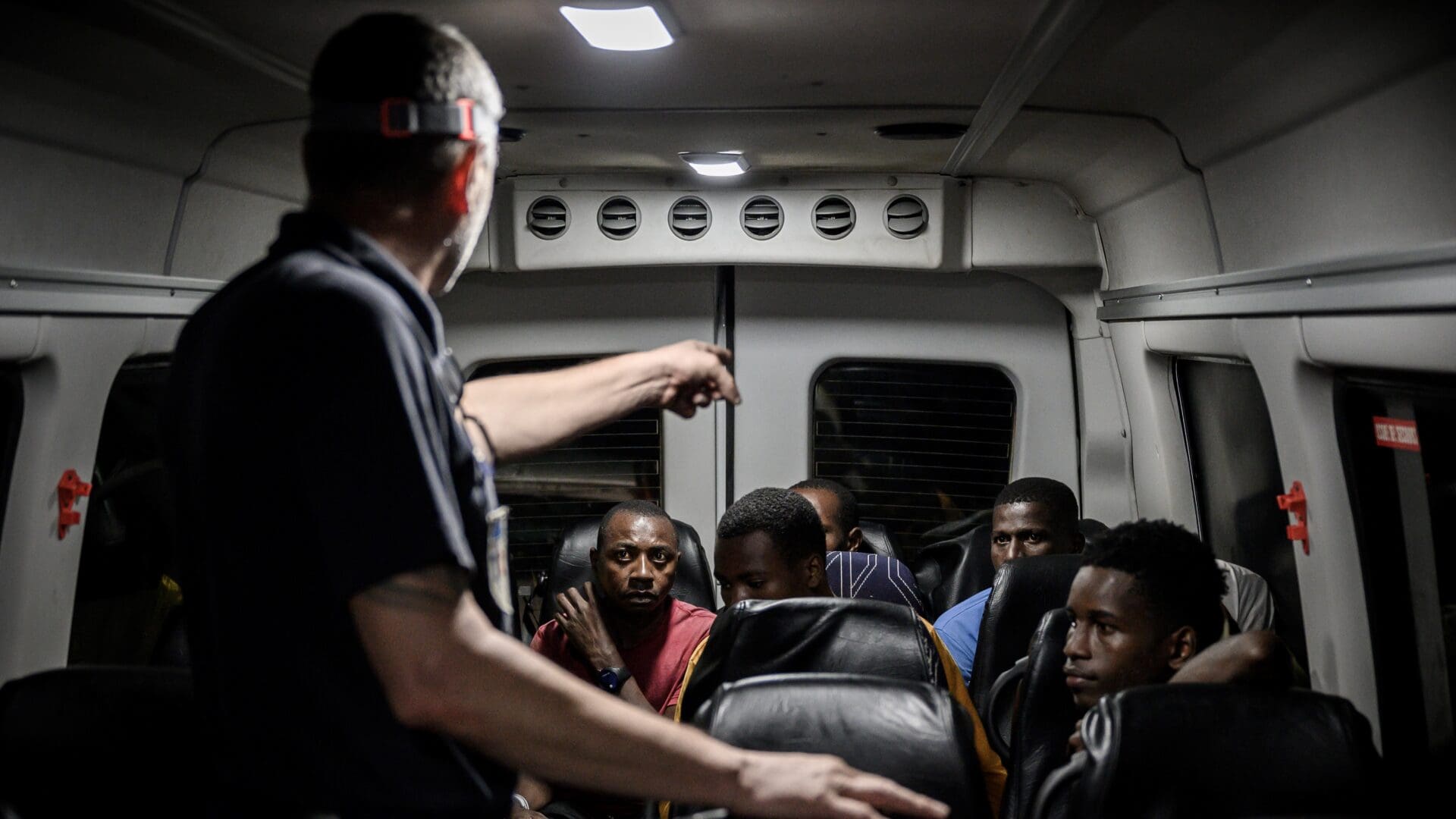Uncontrolled immigration in both the United States and Europe has been an inextricable issue primarily because of the economic and socio-political burdens coercing people to emigrate and the human smugglers who continue to transport them, often dumping them like third-class mail at the border.
The number of undocumented immigrants crossings at the southwest border of the United States for fiscal year 2022 topped 2.76 million, breaking the previous annual record by more than 1 million, according to Customs and Border Protection data. In the the month of March alone, US Border Patrol agents encountered 172,000 unauthorised migrants, primarily from Central America and Mexico—an increase of more than 70 per cent from February and a 20-year high (although a fair number of these migrants may have sought to cross more than once and been double counted as a result).
In Europe, the number of undocumented people arriving on its shores by sea has likewise escalated.
More than 36,000 migrants arrived in the Mediterranean region of Europe from January to March this year, nearly twice the number compared with the same period in 2022, according to the latest figures from the United Nation’s refugee agency. It is the highest number since the refugee crisis that peaked in 2015.
In 2 April 2020, in response to the migrant crisis of 2015, which began in 2014 when more than a million refugees crossed into Europe, the Court of Justice of the European Union ruled that member states do not posses the authority to control their borders, unless they have first gained the EU’s permission to do so. The Court, therefore, reprimanded the Czech Republic, Hungary, and Poland for refusing to open their borders to the mandatory quota of migrants and asylum seekers that the EU had sought to impose on them.
The labyrinth in tackling the crisis is that not all refugees or asylum seekers are fleeing their countries of origin for humanitarian reasons.
In response to the translucent EU ruling, the aforementioned countries, Hungary in particular, argued that the vast majority of the migrants were not seeking asylum, but instead were mostly Muslims seeking illegal entry for financial reasons, amongst whom there might be many potential terrorists. Indeed, in 2016 most Muslims seeking refuge or asylum were not women and children, but as the United Nations itself stated, ‘75 per cent of the migrants are “young, fit males”’.
Hungarian intelligence discovered that 95 per cent of the migrants arriving at the country’s borders were in fact males of military-age men in military-style group movements; hardly any of them were innocent women and children who suddenly appeared at the Hungarian border when the left-wing media were present.
The Burden of Illegal Migration
Aside the financial cost to accommodate such individuals, ad hoc policies have only facilitated poor vetting systems. Aside from the honest people who seek a better life, many illegal foreigners commit crimes—in the US they account for 25 per cent of crimes such as homicide, kidnapping, rape, and theft.
In America, under the pretension that ‘we need [im]migrants pick the food we eat…clean our homes’, Washington is using hundreds of billions of federal dollars to shift federal agencies and personnel further away from enforcing the nation’s immigration laws and toward processing and accommodating millions more illegal aliens. This policy agenda defies federal law and abuses American taxpayer dollars, and Congress should act to halt it.
Indeed, in the US, at the start of 2023, the net cost of illegal immigration for the US taxpayers—at the federal, state, and local levels–was at least $150.7 billion, an increase of $35 billion in just five years. To break it down, each American taxpayer spends $1,156 per year ($957 after factoring in taxes paid by illegal aliens).
In Hungary, however, since the construction of the border fence in 2015, the number of irregular border crossings has drastically decreased following their peak of 441,515 in 2015. Hungarian authorities apprehended around 122,000 illegal entrants in 2021.
In mid-May, Gergely Gulyás, the Minister heading Prime Minister Viktor Orbán’s Office announced the government’s decision to release seven hundred foreign traffickers with prison sentences to leave Hungarian prisons. They will initially be placed in so-called re-integration detention and will be deported from Hungary within 72 hours afterwards.
The glaring issue with the decision is that Budapest claims the enormous numbers of foreign people smugglers in Hungarian jails is an indisputable proof of the effectiveness of its border protection measures. Nevertheless, the purpose of the measure is to guarantee that the burden of enforcing the punishment of traffickers is not borne by Hungarian taxpayers—at least this is the positive end-result of the special measure, according to the government. In fact, nearly 49,000 illegal border-crossers and 387 human smugglers have been stopped in Hungary this year.
Illegal migration is still a heavy burden on the Hungarian state.
György Bakondi, the Prime Minister’s Chief Internal Security Advisor, said that migrants and human smugglers had put significant pressure on Hungary’s borders:
‘Some 12 per cent of prisoners in Hungary are serving time for human smuggling, totalling 2,048 people from 73 countries. It is the people on the fringes, the really big criminals who are the movers of the networks do not even come close to the border and cannot be caught.’
The Real Crisis
The argument presented by left-wing politicians that we need more migrants to do the work Americans or Europeans do not wish to do is both demeaning and pretentious. This does not only classify aliens as ‘slaves’, it also falsifies the truth suggesting that most Americans and Europeans are not hardworking people. Consequently, most pundits have become hostile in their coverage by vilifying border patrol agents, glorifying illegal immigrants, and shaming Americans, or leaders, such as those in Central Europe, as xenophobes or fascists for not tolerating unrestricted immigration.
Such mischaracterising prevents any open and proper discussion to reform the system.
Yet the real crisis is not either at the US-Mexican or at the European borders. Instead, it stems from Central America. Crime, violence, corruption, and economic devastation in the region have propelled people to the border, and US policies, which both Democratic and Republican administrations alike have been altogether unsuccessful to resolve. In Europe, the Balkans, Africa, and the Middle East have propelled their citizens to flee inhumane situations due to civil strife, terrorism, kidnappings, etc.
The other challenge is human trafficking. In the US, traffickers compel their clients to engage in commercial sex and to work in both legal and illicit industries and sectors, including in hospitality, traveling sales crews, agriculture, janitorial services, construction, landscaping, restaurants, factories, care for persons with disabilities, and so forth.
While Hungary does not fully meet the minimum standards for the elimination of trafficking, it is making significant efforts to do so. In addition to imprisoning human traffickers, the Hungarian government has made provisions to the Act of Criminal Procedures and related sectoral legislation, modifying the conduct of proceedings involving children, including child trafficking victims, to prevent re-traumatisation during investigations and court proceedings. In addition, it amended the Victim Support Act to allow victims of violent crimes, such as trafficking, to receive compensation regardless of the victim’s income level, and it extended the deadline for claiming compensation from three months to one year.
A Viable Solution?
Securing borders and deporting illegal migrants who pose a threat to society is essential, however that will not solve the problem of uncontrollable immigration.
Ultimately, the US and EU member states will need to cooperate with the governments from where migrants are emigrating
through a combination of smart development aid and investments in institutions that support the rule of law. In other words, there needs to be investment in the independence and capacity of prosecutors and the courts to properly confront corruption, which would pave the way for foreign investors to create and develop infrastructure that would produce good paying jobs, just as the Marshall Plan did for Europe after World War II. Both would eventually be instrumental in counteracting the offers of drug cartels who are the ‘employers’ and ‘lobbyists’ in those lands. This can also, after years of investment, provide the incentive or alternative for people to remain in their homelands and rebuild their lives for themselves and their progeny.








